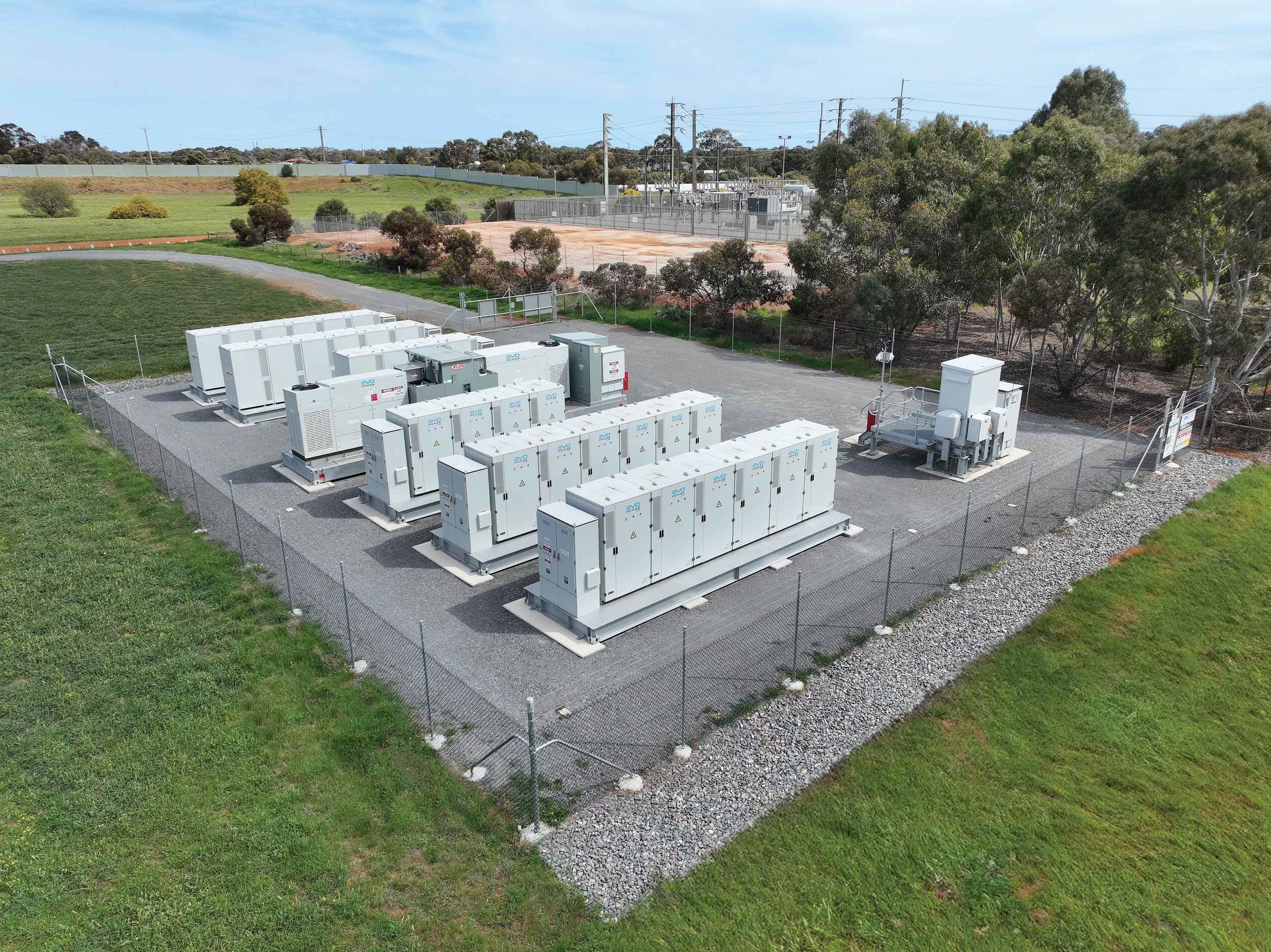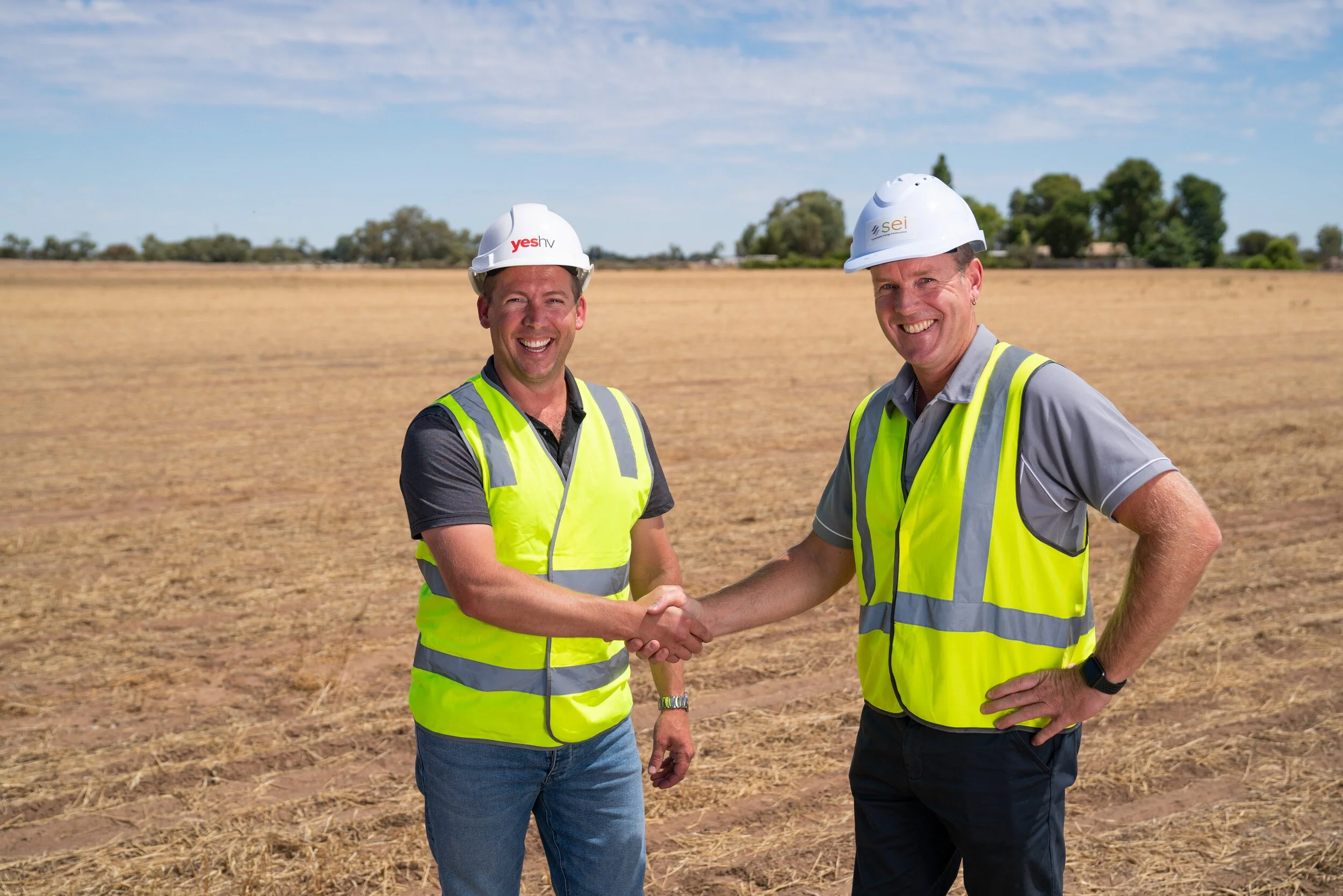
Battery Energy Storage Systems (BESS)
Battery energy storage systems (BESS) use leading-edge technology to offer, not only robust, stand-alone backup power for microgrids, but also an ability to assist in load balancing in the National Electricity Market (NEM). SEI can tailor BESS solutions to cater for a project’s specific requirements, operation and storage preferences.
Applications of BESS
BESS systems are ideal for a wide range of applications due to their versatility, reliability, and efficient electricity storage and delivery capabilities.
Renewable energy integration: store surplus energy during periods of reduced demand or increased generation, for use during times of high demand or when renewable supply is limited.
Grid stability and frequency regulation: enhance grid stability by mitigating variations in power supply and demand. BESS can quickly react to changes in system frequency to help ensure the grid stays within acceptable thresholds.
Peak shaving: decrease peak demand prices for commercial and industrial clients by releasing stored energy during times of high demand and reducing your electricity expenses.
Uninterruptible power supply (UPS): deliver the reassurance of a secondary power system for vital infrastructure, guaranteeing uninterrupted power provision during blackouts or emergencies.
Electric vehicle charging stations: efficiently manage grid demand and facilitate rapid charging during peak hours while preventing system overload.
Transmission and distribution upgrade deferral: postpone or eliminate the need for expensive enhancements to transmission and distribution infrastructure by offering localised energy storage and load control solutions.
Demand response programs: engage in demand response initiatives by modifying electricity usage when prompted by utility companies, to assist in balancing supply and demand within the power grid.
Benefits of BESS
Energy storage systems offer numerous benefits to both people and communities.
Energy independence: enhance energy independence and autonomy by empowering individuals, companies, and communities to store the energy they generate.
Cost control: store energy during periods of low demand and lower energy costs for use when demand and/or costs are high. BESS can also optimise the cost and efficiency of energy production by integrating with existing photovoltaic or wind energy systems.
Improved reliability: provide essential power during outages or surges in demand, ensuring a constant and readily available energy supply.
Improved energy efficiency: reduce energy losses during distribution and transportation, and potentially remove the need for additional energy infrastructure.
Case Study
In 2021, Sustainable Energy Infrastructure (SEI) and Yates Electrical Services Group (YES Group) entered a long-term agreement to develop, own, operate, maintain and manage a portfolio of solar farms and distributed BESS across regional Australia.
The agreement between SEI and YES Group has, so far led to the development of seventeen (80MW) mid-scale solar farms across regional South Australia, Victoria and New South Wales.
By early 2025, our portfolio of PV facilities has expanded to:
Renmark and Bowmans (SA) – Completed in 2021
Port Wakefield, Padthaway and Woods Point (SA) – Completed in 2022
Mulwala and Armidale (NSW) – Completed in 2023
Direk BESS (SA) – Completed in 2024
Kadina and Monarto (SA) – Completed in 2024
Nyngan and Werris Creek (NSW) – Completed in 2024
Barnawartha (VIC) – Completed in 2024
Moama, Condobolin and Mulwala (NSW) – Under construction
Wylong (NSW) – Construction to begin in 2024
*Details current as of January 2025
Environmental Benefits
Renewable Generation
When fully commissioned, these seventeen sites will offer a combined capacity of approximately 80MW AC, producing an annual generation volume of 200,000MWh. This will be supplied into the NEM across the country and be sufficient to power over 27,000 homes.
Battery Energy Storage System (BESS)
Three solar farms incorporate a battery energy storage system, with a fourth being a stand alone BESS site, offering a combined capacity of 17.5MWh. This will allow a more dynamic response, ensuring electricity is dispatched to the market when it’s needed most. By using BESS, we are able to divert energy during peak generation times, adding to the stability of the national energy market and its ability to react quickly when demand changes.
Quick Response Time
The nature of solar and battery storage ensures a quick response to the national grid demands, meaning our team can switch the energy on and off within seconds, depending on where it’s needed the most. This steadies the burden of activating less responsive generators and ensures smooth use of renewable sources for homes and businesses across the country.






